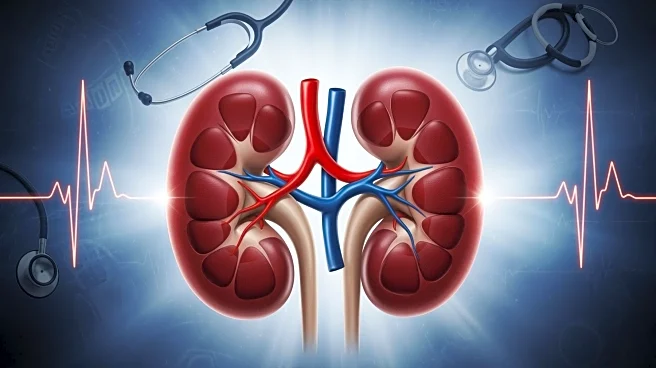What's Happening?
Nick Mangold, a former center for the New York Jets, has revealed that he is suffering from chronic kidney disease and requires a kidney transplant. Mangold, who played 11 seasons with the Jets and was
a seven-time Pro Bowler, shared the news on social media, stating that he is currently undergoing dialysis and is in search of a donor with type O blood. Mangold's career with the Jets was marked by significant achievements, including two first-team All-Pro selections and leading the team to the playoffs three times. His announcement has prompted reactions from various individuals within the sports community.
Why It's Important?
Mangold's situation highlights the ongoing health challenges faced by former athletes, particularly those who have spent years in physically demanding sports like football. The need for a kidney transplant underscores the importance of health monitoring and support for retired players. This development may also raise awareness about chronic kidney disease and the critical need for organ donors, potentially influencing public health initiatives and donor registration campaigns. Mangold's high profile could help draw attention to these issues, benefiting both the sports community and broader public health efforts.
What's Next?
Mangold's search for a kidney donor is likely to continue, with potential support from the sports community and public health organizations. The announcement may lead to increased advocacy for organ donation, particularly among sports fans and former athletes. Additionally, Mangold's health journey could inspire other retired players to share their own health challenges, fostering a community of support and awareness. The Jets organization and fans may rally around Mangold, offering assistance and raising awareness about his condition.
Beyond the Headlines
Mangold's announcement may prompt discussions about the long-term health impacts of professional sports, particularly in contact sports like football. It could lead to increased scrutiny of how teams and leagues support players post-retirement, including health monitoring and access to medical care. The ethical considerations of player health and safety during and after their careers may become a focal point for sports organizations and health advocates.









